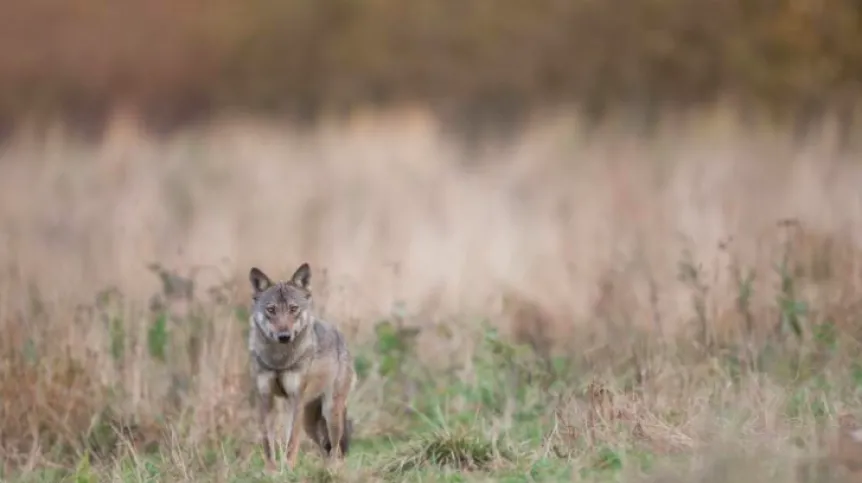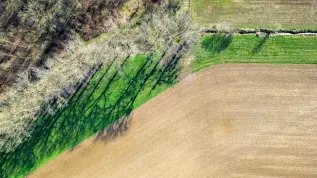
In Poland, only in the forests of the Podkarpacie region large predators, including bears, wolves, lynxes, wildcats and large herbivorous mammals such as bison, elks and deer live side by side.
"Similar coexistence does not occur anywhere in our country, even in the Białowieża Forest" - spokesman for the Regional Directorate of State Forests in Krosno Edward Marszałek told PAP.
The forester reminded that "animals in the forests of Podkarpacie include many small predators such as martens, polecats, raccoon dogs, foxes, badgers".
"We have a full range of wild animals in south-eastern Poland. They live in forests that have many functions, including production" - added the spokesman of the Krosno Directorate.
The forests of Podkarpacie are home to over 500 bison, the largest domestic herbivores, as well as over 200 bears, 500 wolves, 250 lynxes, 200 wildcats and almost 11,000 beavers, according to estimates made annually in the region.
In south-eastern Poland, there are also nearly 15 thousand deer, 43 thousand roe deer and almost 400 elk. Smaller predators are found in large numbers in the Podkarpacie region. There are 5.2 thousand martens, and 2.8 thousand of each badgers and polecats. Foresters also counted 23 thousand pheasants and 14.4 thousand hares.
"The forests of Podkarpacie are one of one of the most important national wildlife mainstays. Their natural value is determined by the presence of the largest protected predators including bear, wolf, lynx and wildcat, as well as strong wild bison herds that live in the Bieszczady Mountains" - the spokesman noted.
On the one hand, the increasing numbers and species diversity of wild game in the Krosno Directorate forests show the condition of forests. On the other hand, it affects the costs of forest and agricultural cultivation.
The Regional Directorate of State Forests in Krosno supervises the activities of 26 forest districts managing the area of over 418.3 thousand hectares.
The forest cover of this area exceeds 36 percent. The annual wood harvesting is nearly 2 million cubic meters, while according to the Forest Data Bank, the average annual growth of timber resources is estimated at over 2.8 million cubic meters; an average of 7 cubic meters per hectare.
PAP - Science in Poland, Alfred Kyc
kyc/ zan/ kap/
tr. RL













